PART 2: 10 TOP DIFFERENCES BETWEEN SHOPIFY AND MAGENTO
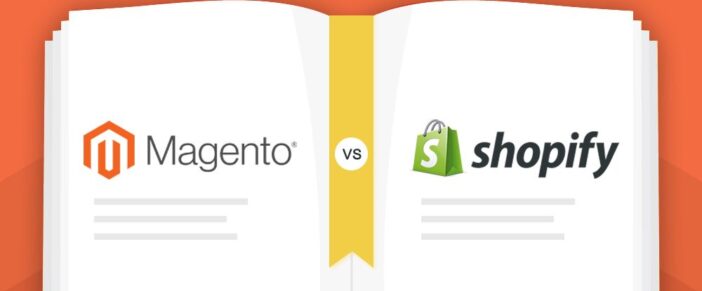
10 TOP DIFFERENCES BETWEEN SHOPIFY AND MAGENTO
Having understood the current e-commerce market, it’s time for us to move forward to the primary differences between the topmost powerful platforms: shopify and magento before taking any actions to hire software development teams or create the system on your own. Both shopify and magento are among the top content management systems in the world. They are both powerful platforms that are used by small mom and pop businesses all the way through to enterprise merchants making millions of dollars.
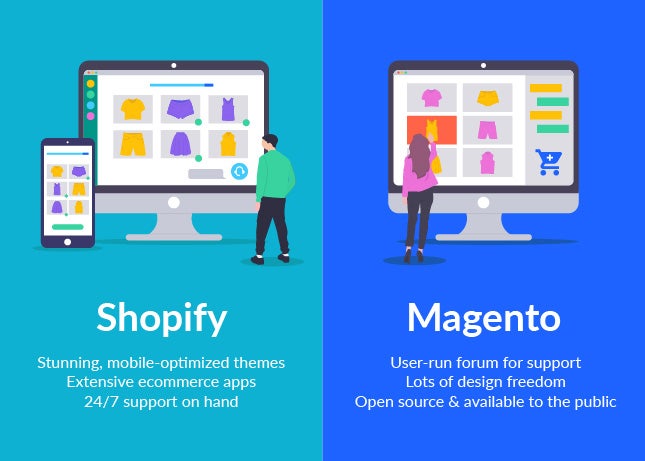
1. COST OF OWNERSHIP
Shopify offers a basic plan at $29/month. Magento is open source so the code source is free, however, there are costs for hosting that need to be factored in. Overall, both starter packages cost relatively the same.
When it comes to the upgraded tiers, Shopify Plus is about $24K a year. Magento Commerce, previously known as Enterprise, will cost at least $22K a year, which is slightly cheaper than Shopify.
Outside of this, the cost of maintaining these platforms differs drastically. Shopify is a SaaS system - so they take care of all software upgrades, security, patches and ensure the platform is PCI compliant.
With Magento being open source, it is up to the store owner to manage the system. This means staying on top of security patches and upgrades. Maintaining the integrity of your store can be costly.
So, taking everything into account, Magento is going to be the more expensive platform.
2. OPEN SOURCE VS CLOSED SOURCE
Shopify is a closed source. This means merchants are limited to the changes they can make to their stores. They have to work within Shopify’s standard parameters. A benefit to closed source though, are the automatic upgrades, security patches, and PCI compliance.
Magento is open source so merchants can access the source code and modify any part of it themselves, depending on their needs, wishes, and dreams. There aren’t any aspects of the system that you can’t change. This provides additional flexibility for customization.
3. DIFFERENT TYPES OF PRODUCTS
Shopify only offers 1 type of product. There is some flexibility with this, in some complex situations, however, Magento is more robust and flexible.
Magento on the other hand, offers 6 product types, which are: Simple, Configurable, Grouped, Bundle, Downloadable, Virtual
This provides much more flexibility with building out more complex products and solutions.
4. MULTI-STORE
Shopify is a 1-to-1 relationship. One account can only be associated with one storefront.
This number is unlimited with Magento. They allow multiple stores to be managed from 1 admin panel. This is extremely helpful for those who manage multiple stores. It is a lot more convenient having access to all stores from one central hub for management, inventory, order, and customer service purposes.
5. B2B
B2B has grown tremendously in the eCommerce world. Many manufacturers and wholesalers who have been in business for hundreds of years have started making their products and services available online, to remain competitive.
Shopify is a bit behind the curve when it comes to this. They do not offer many B-2-B features out of the box. There are some extensions that support B-2-B, but they’re still limited.
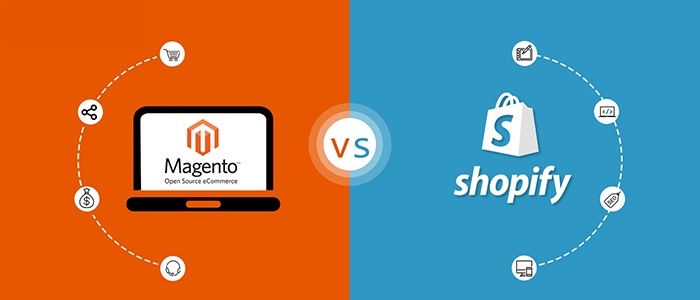
Magento is way ahead of the curve, especially with their enterprise plan, which comes with many B-2-B features built-in natively. Magento’s community version even offers tons of extensions that cater to this market.
IWD Agency has our own B-2-B module that enhances both the Magento Community and Magento Commerce solutions as well. Be sure to check it out here.
6. CUSTOMER GROUPS
Shopify is lacking with this feature. They have tags to differentiate customer groups, but Magento definitely has a leg up in this department. They offer a powerful feature that allows merchants to segment their customer groups - offering these groups different discounts, priorities, catalogs, pricing, etc.
7. INTERNATIONAL SHIPPING
Offering international shipping means an international audience that comes with different storefront needs - language, currencies, types of shipping, etc.
Shopify again, with a 1-to-1 relationship lacks the availability to have a separate dashboard to accommodate a full international eCommerce storefront.
Magento that allows unlimited dashboards, allows for multiple storefronts to be set up - listing the diff catalogs, taxes, shipping options, payment methods, etc.
8. HIGH RISK/CONTROVERSIAL ITEMS
Shopify has more control over the types of products they will allow merchants to sell through their platform. For example, guns and ammunition. Up until a few years ago, merchants were allowed to sell such products through Shopify. When Shopify merchants heard the news, they had to rebuild and migrate to another system.
Magento takes a different approach. If a product is legal, merchants can sell them through their Magento storefront. Products such as guns, ammunition, x rated, and tobacco-related products. They do not act as a gatekeeper nor dictate what can and cannot be sold.
9. PCI COMPLIANCE AND SECURITY
Every eCommerce owner needs to make sure to check this box and check it well. No one wants a customer’s data to be hacked or stolen, nor be shut down by Visa or Mastercard. Store owners need to ensure their stores are secure and follow all PCI compliance to avoid being shut down.
Shopify offers straight out the box upgrades. They control the integrity of the store and ensure they remain compliant so that individual merchants don't have to.
Magento, since they are open source, is a different story. They’re not responsible for the code a merchant modifies for their store. It is up to the store owner to stay on top of PCI compliance. This is one of the biggest reasons we recommend using a certified Magento developer.
Don’t leave it to chance to open your store up to vulnerabilities. There are many companies out there, including us, who can ensure your Magento stores are PCI compliant. It is up to you to make sure you’re doing this, so get in touch if you need some help.
10. DEVELOPERS
Shopify doesn’t allow merchants to modify the coding files. That said, it is an easier platform to work with which means there’s a larger pool for assistance when in need of a developer, designer, or QA.
Magento, being more complex, it becomes a lot easier to break the coding. Needing assistance will require a lot more specialized and technical skills, as they need to understand the front and backend of the store. This means a smaller pool of developers to choose from, who will more than likely come at a higher price point.
START YOUR E-COMMERCE BUSINESS WITH PROFESSIONAL WEBSITE AND APPLICATION - CHOOSE AEGONA SOFTWARE COMPANY!
Having been successfully delivering more than 95 projects to more than 80 clients in 12 nations and confidently appearing on the top of your search results, Aegona is a hundred percent confident in providing you with the best-dedicated software development teams. Especially, at Aegona, we have abundant resources of PHP Software Developers, especially, Laravel Experts to dedicatedly contributing to clients' outstanding projects.
Therefore, if you are looking for the best, highest-qualified, and cost-effective offshore or outsourcing software company satisfying any of your high-standard requirements to partner and hire software development teams, Aegona Software Company (Vietnam) is worth your choice.
Iwdagency and Emarketer
related post

Amid the vibrant working atmosphere at Aegona, this September and October will be more exciting than ever with the kickoff of the 2025 Internal Chess Tournament

As scheduled, the monthly internal event “Happy Hour” returned to Aegona’s office this September afternoon, bringing along a joyful atmosphere filled with connection, laughter, and positivity.
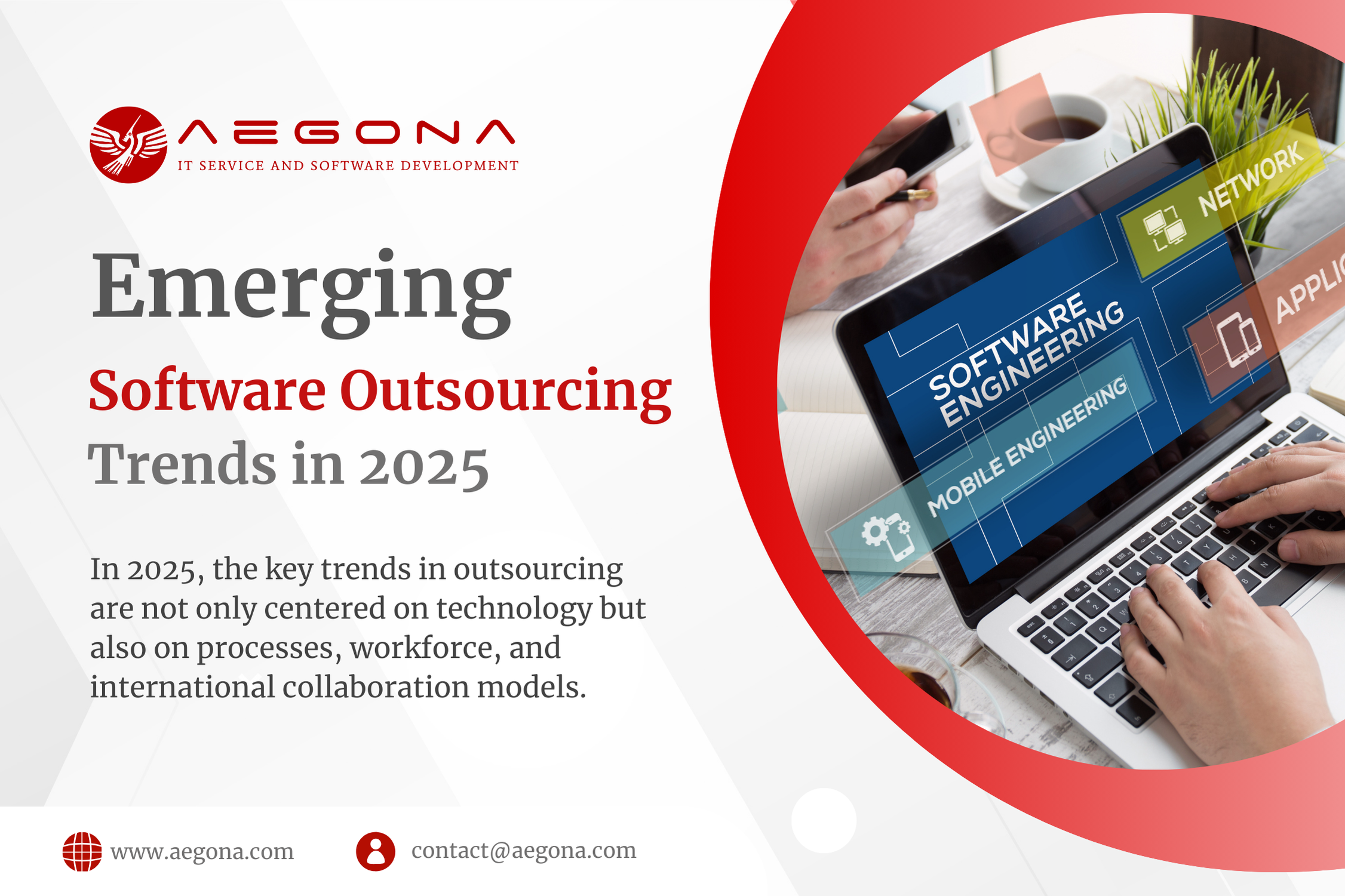
Discover the key software outsourcing trends in 2025, from AI, automation, hybrid outsourcing to workforce training. Understanding these trends helps businesses optimize costs and improve software quality.

On June 16, 2025, following a series of technical discussions and alignment on technology directions, Aegona and Biblia officially signed a strategic cooperation agreement to develop a comprehensive digital publishing platform that integrates both E-books and Audiobooks.
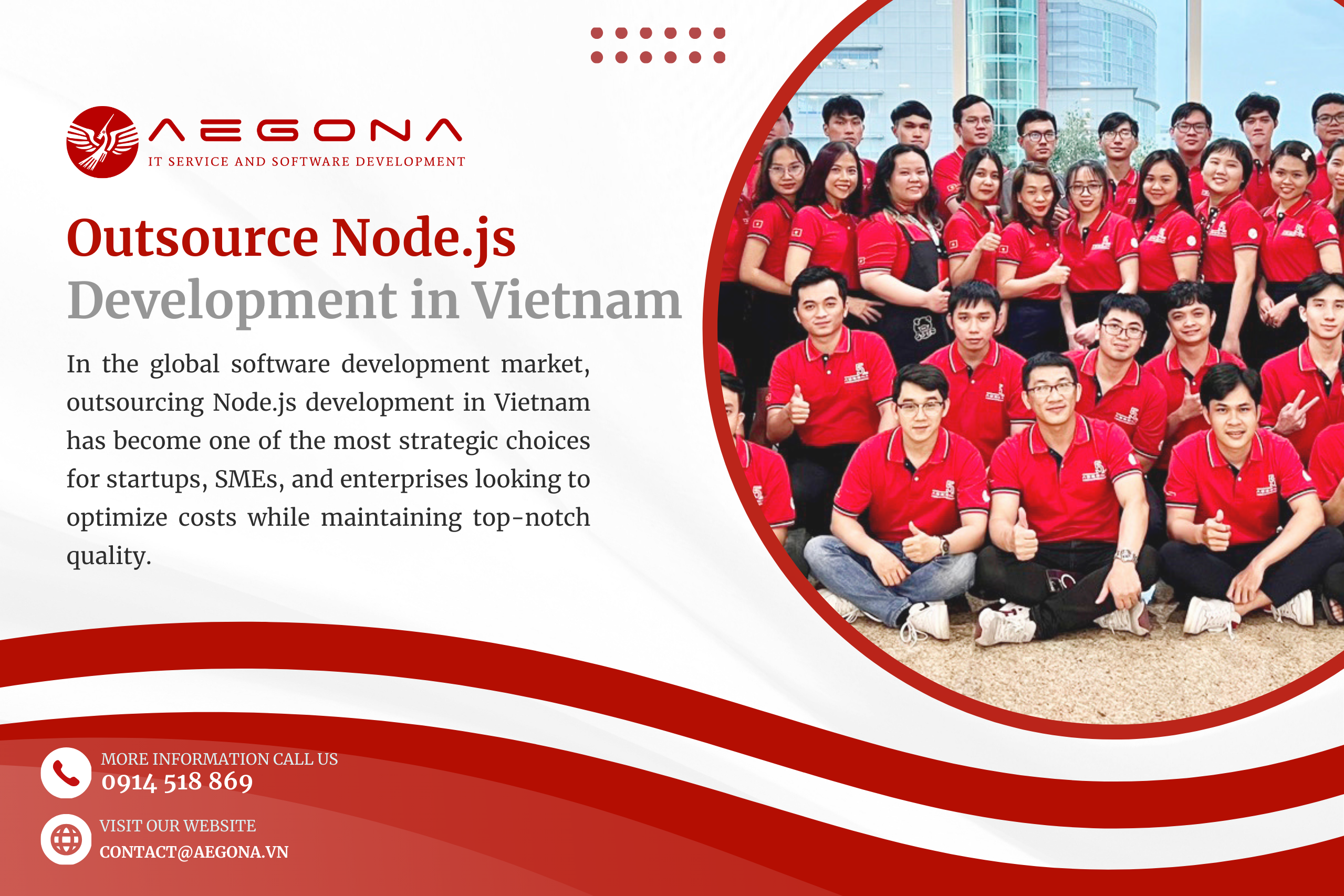
In the global software development market, outsourcing Node.js development in Vietnam has become one of the most strategic choices for startups, SMEs, and enterprises looking to optimize costs while maintaining top-notch quality.

We are proud to announce that Aegona has officially achieved ISO 9001:2015 certification, an internationally recognized standard for quality management systems.
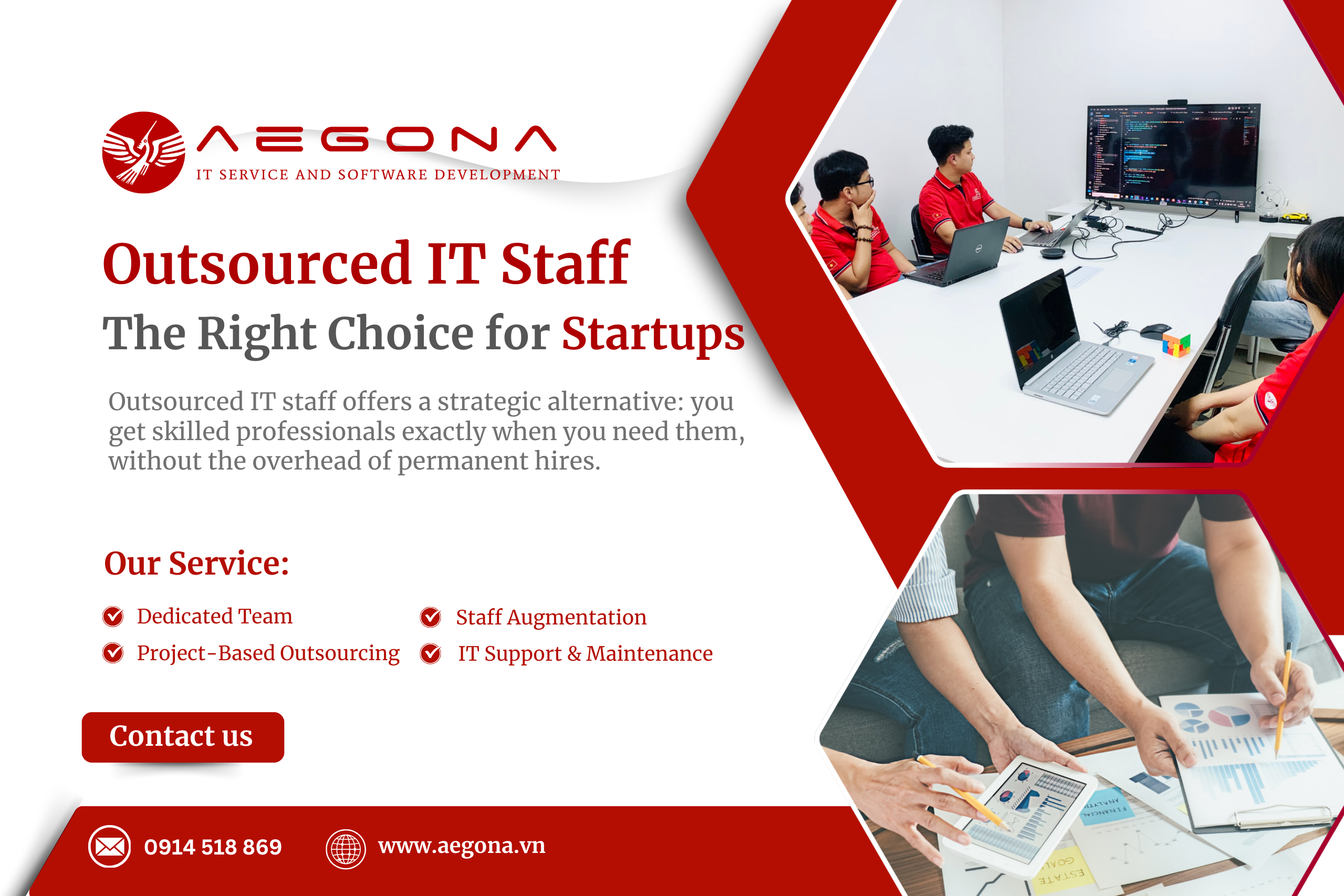
Outsourced IT staff offers a strategic alternative: you get skilled professionals exactly when you need them, without the overhead of permanent hires.
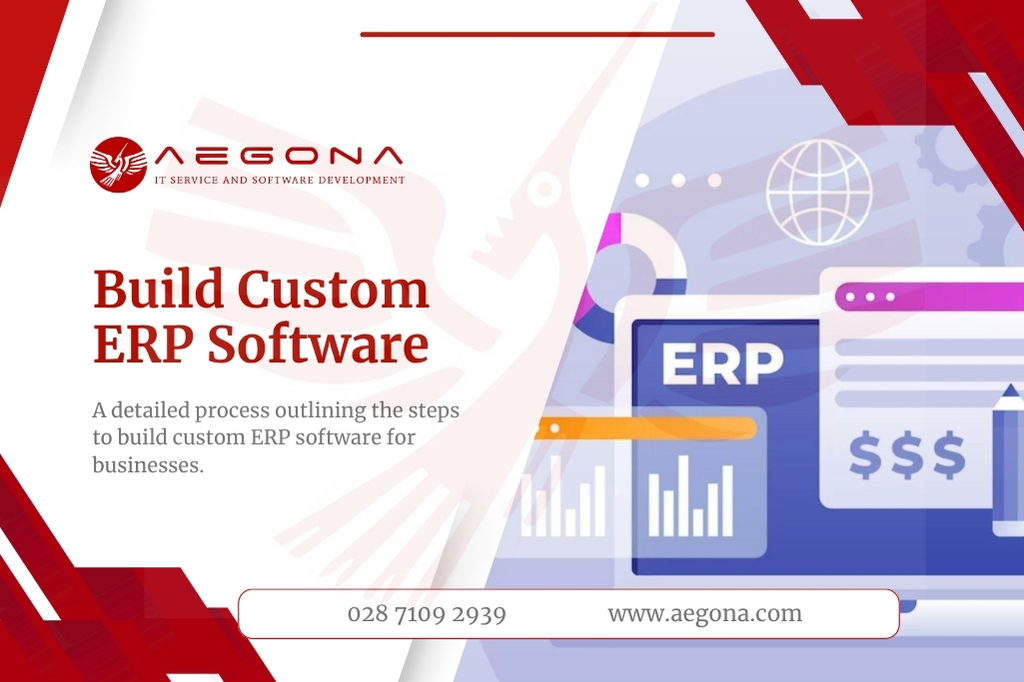
Build custom ERP software to streamline operations, boost efficiency, and fit your business needs. A complete step-by-step guide.
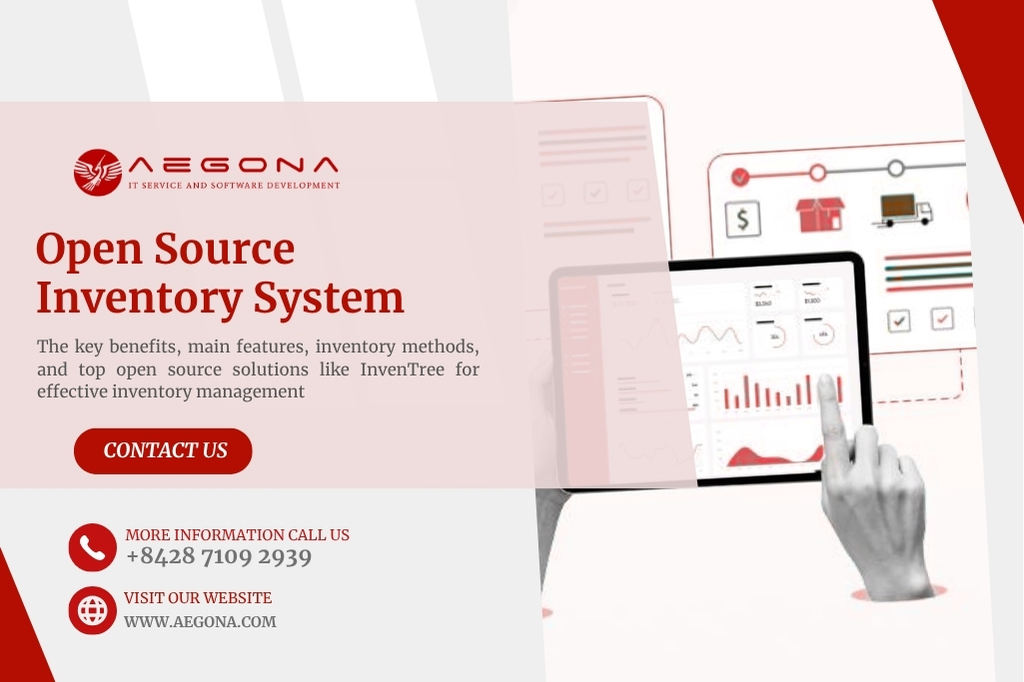
Discover the best open-source inventory systems like InvenTree. Learn key features, benefits, and tools to optimize warehouse and inventory operations.
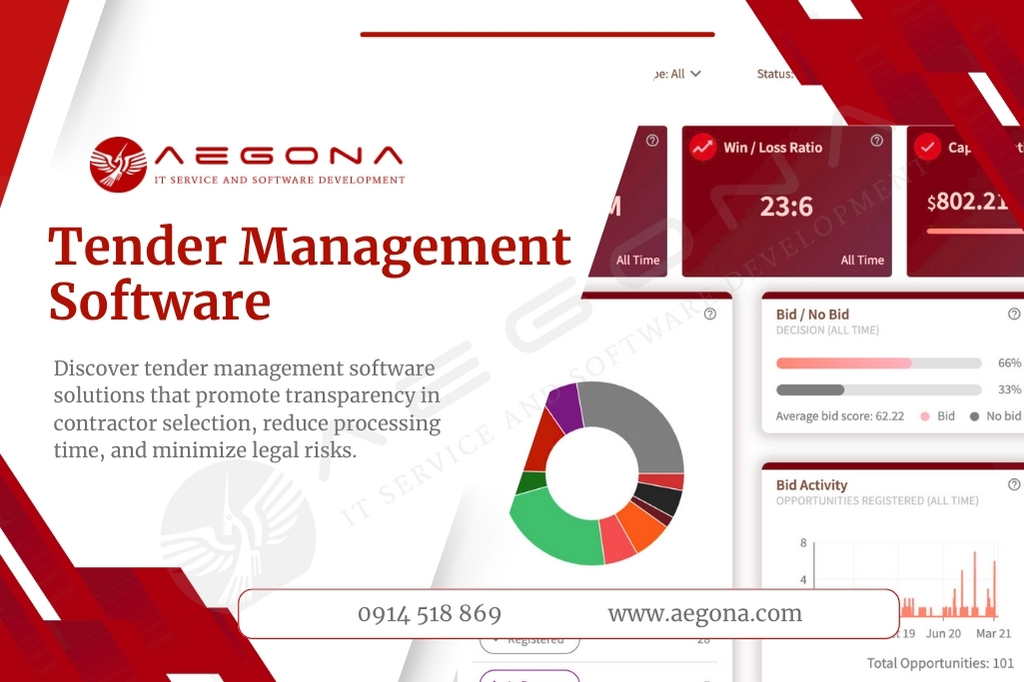
Discover how Tender Management software streamlines bidding, boosts efficiency, and when to choose a custom-built solution.
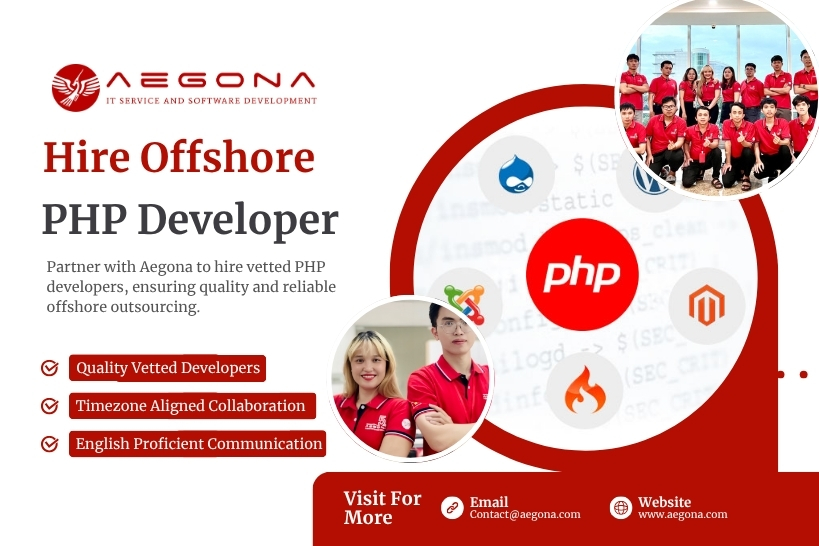
Discover the benefits of hiring offshore PHP developers in Vietnam and explore a step-by-step process to build a skilled, cost-effective development team.

Discover the key benefits and features of real estate app development in Vietnam for businesses aiming to grow in the digital property market.

Custom FinTech app development for banking, insurance, payments & more. Secure, scalable, and tailored to your business.
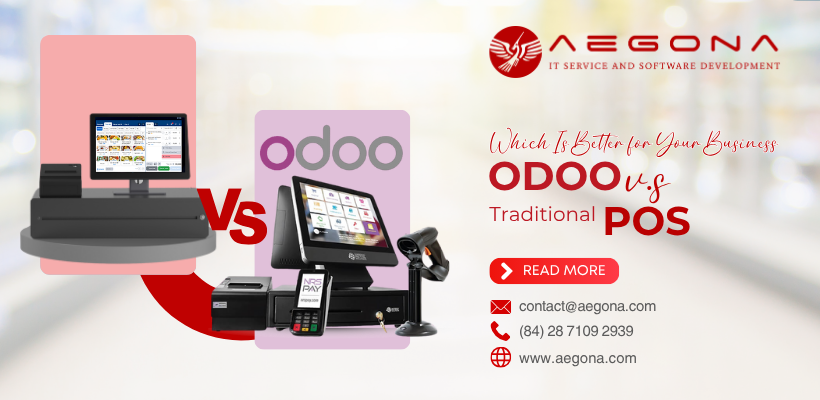
Odoo POS software is becoming an effective alternative to traditional POS systems thanks to its flexible integration capabilities and reasonable cost. Using sales management software plays an essential role in optimizing business operations. This article will help you compare Odoo software and traditional POS systems to find the most suitable option for your business.
